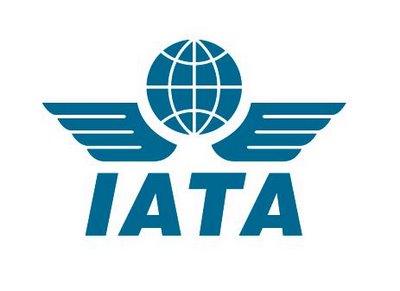Partnership for Aviation in Eastern Europe

The International Air Transport Association (IATA) urged governments in Eastern Europe to work with industry stakeholders to fully realize the benefits of aviation across the region.
“Aviation connectivity can play a key role in the economic success of Eastern Europe. But in order to achieve these benefits, the region will need to tackle some long-standing problems which hamper competitiveness and innovation,” said Tony Tyler, IATA’s Director General and CEO during the opening of the Aviation Day in Bucharest.
Tyler set out three areas where governments could embrace innovation in a partnership agenda with the industry to enhance the economic and social benefits of aviation connectivity.
1. Environment:
The industry has committed to carbon-neutral growth from 2020 (CNG2020) to be achieved through a combination of improvements in technology, infrastructure and operations. Market-based measures (MBMs) are a part of the industry’s strategy as a gap-filler until these solutions mature. While this is the industry’s strategy, it can only be achieved in partnership with governments. Moreover, as the environment is a global challenge, the solution must also be global.
“At our Annual General Meeting (AGM) in June, member airlines agreed a resolution supporting mandatory carbon offsetting as a single MBM to be implemented globally with due consideration for the special circumstances of some airlines. Now it is up to governments. When they meet later this month at the 38th Assembly of the International Civil Aviation Organization (ICAO), they will have a golden opportunity to agree a global approach to MBMs. Eastern European governments can play a key role by keeping focused on reaching a successful conclusion on global measures. If an agreement is not reached, and individual regions go their own way, then the threat of a trade war will loom again,” said Tyler.
Sustainable biofuels will be an important part of the long-term solution and Tyler stressed that research had shown the viability of aviation biofuel from camelina plants grown in Romania. “The next phase of the project will have to focus on the challenge of industrial-scale production, and for that, strong support from the government will be required,” said Tyler.
2. Passenger Rights:
Tyler called on governments to recognize that airlines were operating in a highly competitive industry and were committed to getting passengers to their destinations on time. Governments have a responsibility to protect consumer rights, but these should take the form of simple guarantees, which given the nature of the aviation business, should be globally coordinated. To assist with that aim airlines unanimously agreed a resolution setting some baseline principles for passenger rights regulations at the AGM in June.
“The competition faced by airlines, not just between themselves, but with other transport modes like rail, means that airlines have every incentive to keep their customers happy. They won’t stay in business otherwise. Moreover the increasing micro-management of the industry from regulators is stifling innovation and creating unintended consequences,” said Tyler.
Tyler particularly emphasized European Union proposals to revise Regulation 261, which would make the operator of the first leg of a multiple-leg journey liable for compensation for the total trip, if it is deemed responsible for a delay that results in a missed connection and - because of the re-routing - a delay on arrival at final destination. “This could have disastrous consequences for European connectivity. In Romania, airlines make use of some of the major hubs in neighboring countries to provide interlining connections to cities where a direct service from Romania is not viable. This revision to 261 threatens the connectivity to those parts of the world. If carriers feel the risk is too great, then they will cease to offer connecting flights,” said Tyler.
3. Infrastructure:
In Europe the most pressing infrastructure issue is the Single European Sky (SES). The lack of political will to push states to unify European airspace is costing the continent EUR5 billion a year.
IATA together with other European airline associations published a report in February setting out recommendations for delivering the SES. These included the establishment of an independent economic regulator, and a reduction in air traffic control centers from 63 to not more than 40.
There are two steps which governments in Eastern Europe can take to make immediate progress:
Support the SES II+ package proposed by the European Commission. The SES II+ Rapporteur in the European Parliament is a Romanian, Marian-Jean Marinescu, who understands the importance of this project.Make genuine progress with the Functional Airspace Blocks (FABs). For example, Romania is tendering for a new air traffic management system alone, when such procurements should be approached from a FAB perspective.
Tyler concluded by stressing the importance of building a strong Eastern European aviation industry to reap the benefits of air connectivity. “Experience shows us that aviation prospers most strongly when it is free of government interference. The issue is not ownership, but freedom of strategy. The full-service carriers in Eastern Europe are facing a significant challenge from new competitors, and they will need to adapt their business models to survive. They will not be able to do so if they are held back by their owners. Governments need to understand that their role is not to micro-manage the business, but to exercise strategic vision,” he said.







.jpg)

.png)

Comments
There are no comments yet for this item
Join the discussion